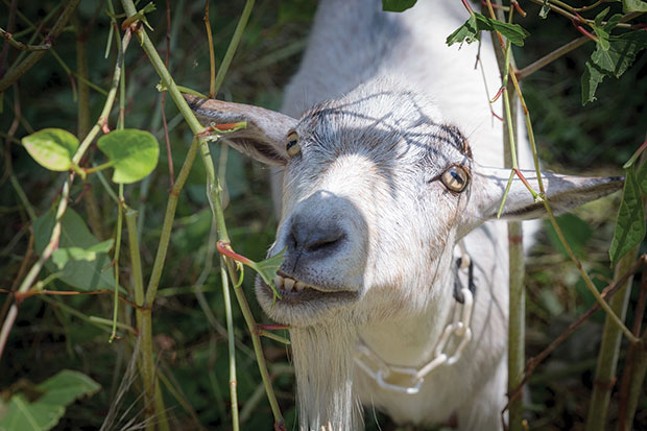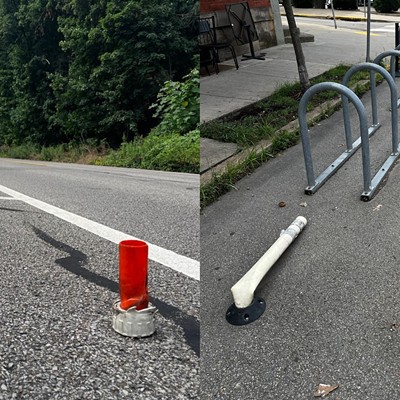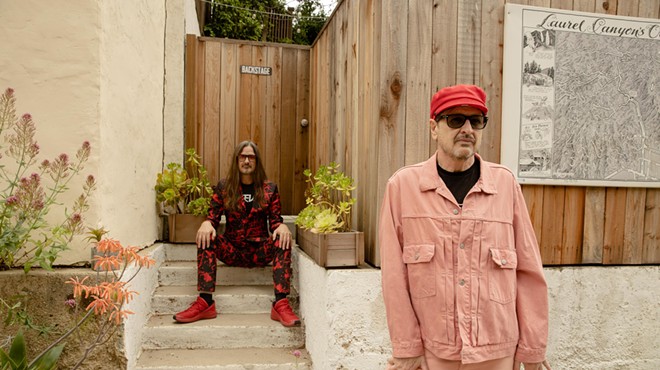Other local sites the Allegheny GoatScape herd has tended include Garfield Community Farm and a lot owned by the First United Presbyterian Church of Crafton Heights. “Our church owns a hillside that is a challenge, to say the least, to traditional landscape management. Our current lawn service refused the business, because he thought it would be too tough on his machinery or too risky to his employees,” says Pastor Dave Carver. “The environmental factor was huge, too. We’ve been trying to be greener and greener, and this seemed like an attractive option.”
Goats are popularly known for consuming anything that’s put in front of them, making them the ideal weed-eaters. Though they’re sometimes called “mowers,” this isn’t technically true. Animals like sheep are grazers, meaning they eat low vegetation like grass, but goats are browsers.
“They get pretty creative with how they look for food. If it’s easy and at their face level, that’s their favorite, but if they want leaves, they’ll climb as high as they can get and reach for it and pull down,” says Deming.
Many of the plants the goats eat are invasive species like Japanese knotweed, which is known to damage structures and kill other native plants. “The nice thing about this whole venture, bringing them to eat unwanted plants, is that they like most of the plants in here,” Deming says gesturing to the lot in Crafton Heights. “Goats are similar to humans in that they have tastes, so some things they like more than others. We’re very grateful that one of their favorites is the knotweed.”
It is important to remember, however, that the goats aren’t taking the plants out at the root; they’re weakening it by eating what’s above the ground. “To really remove it in full, there needs to be a management plan in place, so that somebody is gonna cut it down when it comes back up or dig it out,” says Deming. “This is really just the first broad brush that allows a neighborhood or the owner to see what can happen with the space.”
Goatscaping is an environmentally friendly alternative to more traditional landscaping techniques that use harmful chemical herbicides or fuel-powered machinery. The only fuel the goats require is the plants they eat, and they even leave behind some natural fertilizer in the process.
In addition to the environmental benefits, cost is a major reason why people are choosing goats over traditional landscapers. That can cost a few thousand dollars after paying for labor, machinery and chemicals, whereas a herd of goats is much cheaper. Allegheny GoatScape charges a setup fee which is dependent upon the challenges of the particular space, after which the cost to have the herd there is only about a hundred dollars a day.
“When I hear people talk about how much things cost, they’re shocked at how cheap this can be,” Deming says.
Ultimately, it’s the affordability of goatscaping that could make it more sustainable than other environmental practices, which sometimes cost more than their environmentally harmful counterparts. And the cute-factor of having goats on your property doesn’t hurt either.
No matter what leads people to embrace goatscaping, Deming just wants to see the practice more widely used. “It’s OK if good things are cute,” he says, “even when good things aren’t always cute.”














